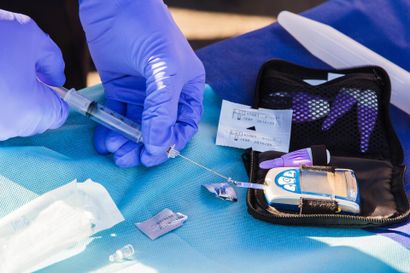What is Diabetes?
A growing problem
Type 1 Diabetes
This type of diabetes affects, above all, children and adolescents. The body doesn’t produce enough insulin and without medication, the patients cannot survive.
The most common causes of death in type 1 diabetes are kidney failure and heart disease.
The good news is that the prognosis can be improved with good blood sugar control. Maintaining tight blood sugar control has been proven to prevent, slow the progression of and even improve established complications of type 1 diabetes.
Type 2 Diabetes
Type 2 diabetes is sometimes called non-insulin dependent diabetes or adult-onset diabetes. Type 2 diabetic patients do not usually require injections of insulin. They themselves can control the glucose in the blood by watching their diet, by regular exercise and by oral medication.
Type 2 diabetes is most common in individuals older than 45 who are overweight. However, as a consequence of increased obesity among the young, it is becoming more common in children and young adults.
If people with type 2 diabetes are not diagnosed and treated, they can develop serious complications, which can result in an early death. Worldwide, millions of people have type 2 diabetes without even knowing it. Others do not have access to adequate medical care. The onset of type 2 diabetes is also linked to genetic factors but the risk is most increased by obesity, physical inactivity and unhealthy diet.
Tight control of glycemia and blood pressure as well as keeping the ”bad” cholesterol (LDL) at the recommended level and the ”good” cholesterol (HDL) as high as possible are imperative.


